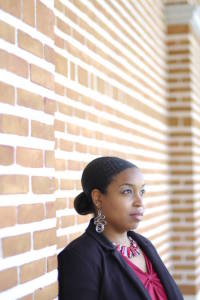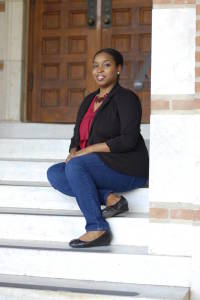* This was written 10 years ago… I had just finished my first semester as a Doctoral student, and for a final assignment, I was asked to write a reflection that would be instrumental in giving advice to new teachers. Now entering my 15th year in education, I am proud to look back on my journey, and I now cherish the opportunity to work with and mentor new teachers. I have learned so much more since December 2008– and could probably write a book on my experiences in education, but my vision and purpose has not changed. Share this post today with a new teacher, as well as a veteran teacher who needs to be reminded that in the education profession, you “need caring and observant mentors to guide you along”.
New teachers: Find a mentor. Don’t wait to be assigned one.
Veteran teachers: Help a new teacher understand the importance and worth of this profession, and guide them along. It doesn’t have to be a lot of work–your example may be all that they need.
December 7, 2008
Dear Future Educator:
As an educator with six years of experience, I have done this job long enough to know that teachers as yourself need caring and observant mentors to guide you along. However, I have not been in the profession long enough to forget what it is like to be in your shoes. You are about to enter a profession that is rewarding and challenging. It is a place to showcase all of your talents. Although you will establish a variety of daily routines in your classroom, each and every day will be different. As an educator, your most important responsibilities are to be responsive and caring to your students, remain professional in a variety of situations, and evolve and grow each year.
Even if you go back into your old neighborhood and get a job at the school you went to, chances are the school has changed since you went to school there. Even if it has not, you will be exposed to many situations that you never encountered or dreamed of as a student. You are going to find that your teachers did a lot more behind the scenes to prepare and serve you than you ever knew. Your job is to create an environment that feels safe to your students. They should feel comfortable enough to participate and share in the learning environment. As poverty in our country continues to rise, you may be in a school in which the students’ best place the visit is school. It may be their most pleasant experience during the day. If you know nothing about poverty in schools, or need a refresher on how bad conditions can be, it is highly recommended that you read the book, “Savage Inequalities” by Jonathan Kozol. He will discuss situations in our educational system that many probably only thought happened at schools in other countries—not in America. Even in the worst conditions, pay attention to things that would make your student a bit more comfortable—rather it be a nice picture or poster of outdoor scenery in a windowless room, or a reading area with bean bag chairs for students who do not get time out to read and relax at home. If you cannot afford to spruce up your environment (I know a teacher’s budget is tight), use your students as a resource. Use their work as a means to decorate your room. Your class should reflect your teaching style(s), as well as be a representation of who resides there.
in the worst conditions, pay attention to things that would make your student a bit more comfortable—rather it be a nice picture or poster of outdoor scenery in a windowless room, or a reading area with bean bag chairs for students who do not get time out to read and relax at home. If you cannot afford to spruce up your environment (I know a teacher’s budget is tight), use your students as a resource. Use their work as a means to decorate your room. Your class should reflect your teaching style(s), as well as be a representation of who resides there.
The physical look of your classroom is just one small aspect of teaching. Building relationships are a big component for new teachers as well as for any seasoned, veteran teacher. There are three relationships that are going to be of importance to you. One is the teacher and student relationship. Another is the parent and teacher relationship. And last, the other is those relationships that are developed amongst colleagues. You will have students and their families who are different from you, and though it will be a challenge, they will bring a new perspective to your classroom. Embrace their diversity (or lack of), and use it as a learning opportunity. Though not all experiences with students and parents will be positive, you will add knowledge and understanding in relating to other walks of life. Well known author, Lisa Delpit, supports what I am saying to you best in her book “Other People’s Children” when she says, “They (educators) must learn about the brilliance the students bring with them “in their blood”(Delpit, p. 182). She also states, that “If we are to successfully educate all of our children, we must work to remove the blinders built of stereotypes, monocultural instructional methodologies, ignorance, social distance, biased research, and racism. We must work to destroy those blinders so that it is possible to really see, to really know the students we must teach” (Delpit, p. 82). Learn about your students’ likes and dislikes, let them know you are watching them and observant– find out their learning styles, teach them with lessons providing relevance to their communities–and in return let them teach you something.
Your students are watching you. From what you are wearing, to your hair style, if you accidentally show a tattoo that is supposed to be covered up, to what color shoes you wear– they watch your every move. If you ever wanted to be a celebrity, you are now one amongst your class of students and those who attend your school. Even if you live in a large community, there is a chance that you may run into one of your students and parents of your students. The chances are even greater if you live in the community you teach in. Even if you did not teach a student, and they just saw you in the hallway a couple of times—they know you. This example should show the impression you have on your students and parents. Therefore, it is extremely important to be professional in all settings—with students, parents and colleagues (are you seeing a trend of whom you will be dealing with?). You should be professional in your appearance, with your written and verbal communication, and how you respond to situations. Do not act like you “know it all” as a new teacher—you can’t learn that way.
 As you are working on your professionalism, begin to evolve with each day, each week, each month, and each school year. Just as education has evolved from exclusive and rigorous grammar schools, to private religious schools, to segregated schools, to integrated schools, to charter schools, to magnet schools, to No Child Left Behind– you as a professional educator must evolve. The best way to evolve is to be open to change and help within your classroom. Go to staff development that your school district may offer—in most cases it is FREE!! This (staff development) is similar to coaching for teachers, and a forum to discuss what is working well (or not so well) in classrooms, as well as an opportunity to network with other educators. Why not take free help and suggestions? In most professions, you have to pay for advice. In your case, help is just a staff development away (or a visit with another teacher can provide insight as well).
As you are working on your professionalism, begin to evolve with each day, each week, each month, and each school year. Just as education has evolved from exclusive and rigorous grammar schools, to private religious schools, to segregated schools, to integrated schools, to charter schools, to magnet schools, to No Child Left Behind– you as a professional educator must evolve. The best way to evolve is to be open to change and help within your classroom. Go to staff development that your school district may offer—in most cases it is FREE!! This (staff development) is similar to coaching for teachers, and a forum to discuss what is working well (or not so well) in classrooms, as well as an opportunity to network with other educators. Why not take free help and suggestions? In most professions, you have to pay for advice. In your case, help is just a staff development away (or a visit with another teacher can provide insight as well).
The struggle that even veteran teachers are having is the struggles that we are having with high-stakes testing, and the demands of the No Child Left Behind Act. This is an area in which I struggle with daily, but I am making moves in my career to voice my struggles and concerns. As a new teacher, you may not feel comfortable with voicing your opinions (or even fully understand all of the laws—I didn’t), but know that there are educators and others who are working towards change in our current state of education. For now, I can recommend that you focus on the well being of your students, and truly educating them. You do this by providing them lessons that teach the relevance of what they are learning, and give them opportunities to “apply” or show what they have learned—not through a standard pencil and paper test. Due to state and national laws, you still have to give standardized tests (don’t say test— they hate that word), and teach state standards. Try alternative ways to assess –use oral presentations, have them do surveys, have them help you create assessments. Make them “think outside the box”. It may take more work and preparation on your part, but which is more rewarding—knowing one of your students can pass a test? Or knowing they are going to remember a lesson you taught for the rest of their life?
Your ultimate job as a future educator is to help someone, just as I am offering advice to help you. I know that you chose this profession to make a difference in someone’s life. Fight and create change in social justice issues that impact you and your students. Know that there are many lessons that could not be taught to you in college or in a classroom when pertaining to this profession. Know that you must instill that same knowledge in your students. When you want your students to learn and get better at something, it takes more than just one class setting, and more than just a few days to master something. Share with your students your struggles in school. Show them how you grew and evolved into the teacher you are today. Make memories for your students, and construct a foundation in which they can build upon to impact their future.
Wishing you a fulfilling career,
Mrs. Kamshia Childs
5th Grade Teacher/Doctoral Candidate
Recommended Reading/References
Delpit, L. (2006). Other People’s Children: Cultural Conflict in the Classroom. New
York: The New Press.
Kozol, J. (1991). Savage Inequalities. New York: Crown Publishers.
Kozol, J. (2007). Letters to a Young Teacher. New York: Crown Publishers.
Reposted by Dr. K. Childs, Educator, Author, Consultant with 15 years in education. She has worked as a Paraprofessional, Teacher, Adjunct Professor, and Visiting Assistant Professor. Her focus areas are Reading/ELAR. She is dedicated to scholarly activities that promote educational empowerment, student engagement, parent and community involvement, and the creation of culturally relevant pedagogy. Visit drkchilds.com for more information on her work in education.


